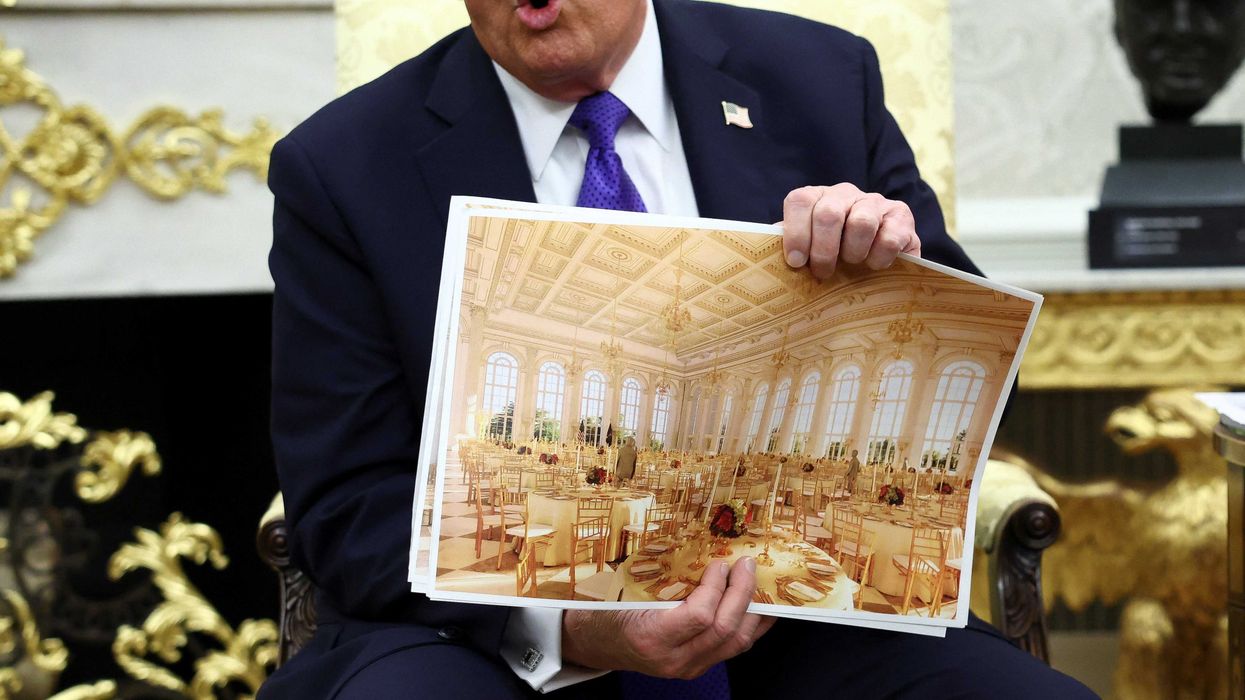Two of the major controversies surrounding President Donald Trump in late October are the demolition of the White House's East Wing and a demand that the U.S. Department of Justice (DOJ) pay him $230 million in compensation for his legal problems of the past.
The East Wing, in its original form, was built in 1902 under GOP President Teddy Roosevelt; then, in 1942, the East Wing underwent a major renovation and expansion under Democratic President Franklin Delano Roosevelt. But 83 years after that renovation — and 123 years after the original East Wing was completed — Trump is demolishing the East Wing altogether in order to build a new ballroom.
During an appearance on The New Republic's podcast, "The Daily Blast," legal reporter Matt Ford drew a parallel between the East Wing's demolition and Trump's demand for $230 million from DOJ — explaining how both controversies are relevant to the "unitary executive theory," a far-right legal doctrine claiming that the U.S. Constitution gives presidents total, absolute control over the federal government's executive branch.
Quite a few legal scholars and civil libertarians vehemently disagree with the unitary executive theory, arguing that it blatantly disregards the checks and balances laid out in the Constitution.
During the interview, posted on October 23, Ford told host Greg Sargent — a former Washington Post columnist — "Earlier this summer, Trump announced that he was going to build a ballroom where most of the East Wing currently is. The plans were kind of dismissed at the time as a little fanciful, and it was assumed that the project would take some time to complete if it followed the normal channels. Unfortunately, Trump doesn't follow the normal channels, and so, he simply started tearing down the East Wing of the White House on Monday, (October 20) — and as of Wednesday, it is now almost entirely gone….. It sort of underscores the degree to which…. this is an administration that is focused on one man's whims."
Ford continued, "This isn't a simple situation where the president is controlling or directing or guiding the executive branch. This is a situation where the executive branch is all working toward his will. It is completely subordinated to him in a way that not any congressional law — or perhaps even court order — can staunch."
When Sargent described Trump's demand for $230 from DOJ as "crazy," he got no argument from Ford.
Ford told Sargent, "I mean, it's pretty crazy. The only thing I could think of that would be more corrupt is if he walked into Fort Knox and just started pocketing the gold bars. This is just one step removed from that because his personal lawyer, (Deputy U.S. Attorney General Todd Blanche), is the one who gets to sign off on it. Somebody who is ethically conflicted out because he was part of the litigation in question in the first place. I don't see any possible way that this sort of frivolous argument can survive. It should be seen simply as just looting the treasury."
Ford noted that the unitary executive theory is also relevant to DOJ's files on the late billionaire investor and convicted sex offender Jeffrey Epstein.
Ford told New Republic colleague Sargent, "Well, you know, under the unitary executive theory, the president has absolute command over the White House. Whether or not that's what the Framers intended is heavily disputed…. But suffice it to say that if the president wanted to release the Epstein files, he could just tell the Justice Department to do so. He's bulldozed its independence."
Listen to the full podcast at this link or read the transcript here.


